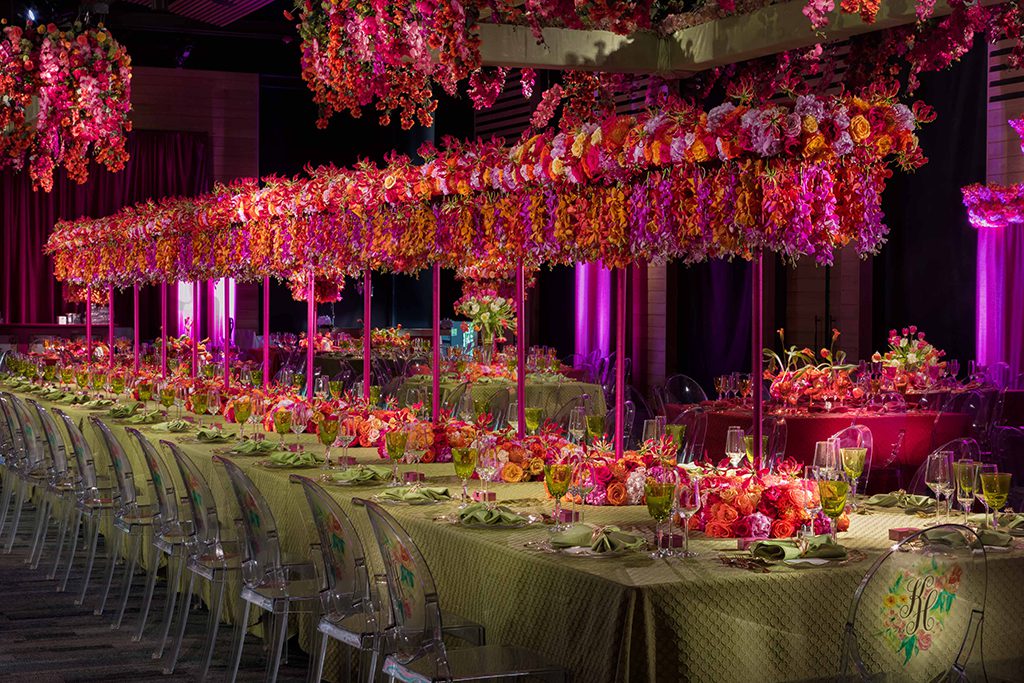
Bill Schaffer’s floral designs for this wedding were created with sustainability in mind. Schaffer offers advice in the latest issue of Floral Management for talking with couples about sustainable floral options.
Increasingly, couples want Instagram-worthy wedding decor with little environmental impact. It can be done, but there are several factors to consider. In the May/June issue of Floral Management, award-winning florist Bill Schaffer, AAF, AIFD, PFCI, breaks down what goes into fully sustainable designs and how to discuss the process with your clients.
“Many times, my team’s response to questions varies based on the overall scale of the floral designs, whether we are designing on site or off site, the flowers used, and even how much the couple is willing to pay for extra services, such as repurposing flowers after the big day,” says Schaffer, owner of Schaffer Designs in Philadelphia. “My team and I have found that the best way to address these questions is to be transparent.”
For instance, if the client’s venue doesn’t allow vendors to set up several hours in advance, designers will need to work ahead in the studio, which means relying on more unsustainable products to hydrate, support, and transport designs to the event. Additionally, Schaffer lets couples know that certain structures, such as chandeliers or arches, require using materials that aren’t seen as sustainable. An alternative material — chicken wire — is not without drawbacks. While it can be used several times, which most green-minded consumers appreciate, “it is covered in plastic, and if it isn’t, it will rust and leach into water,” Schaffer says. The solution? “Compromise,” he says. “Decisions about sustainable design come down to what your client can live with — and what you can live with.”
For more advice, including how to source flowers with the smallest carbon footprint possible (or at least with companies that offset it with actions to help the environment and their employees) and how to give flowers a second act after the big event, read “Challenges, Choices and Compromises in Sustainable Wedding Design,” in the May/June issue of Floral Management.
Katie Vincent is the senior contributing editor for the Society of American Florists.

